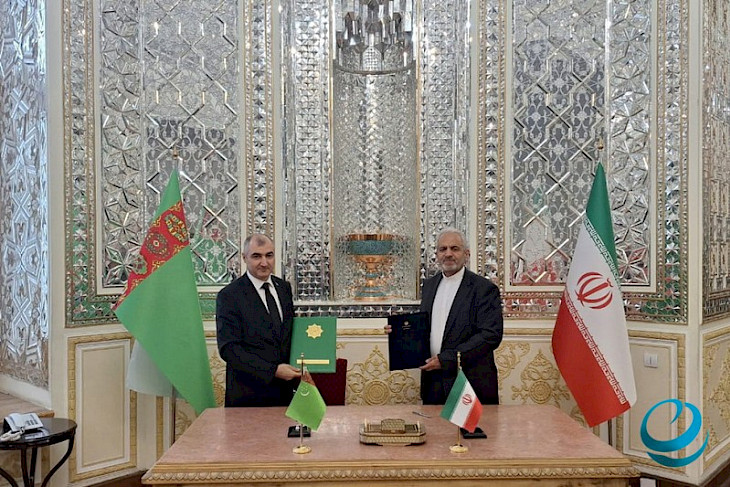Iran is interested in the establishment of border markets in Turkmenistan, according to information revealed during the meeting of the intergovernmental Turkmen-Iranian commission on consular, border, and customs issues held in Tehran, Eurasiatoday.ru reports.
This initiative is expected to promote trade partnerships between Tehran and Central Asian countries, according to the Turkmenistan Ministry of Foreign Affairs.
The Turkmen delegation was led by the Deputy Minister of Foreign Affairs, Ahmed Gurbanov, while his Iranian counterpart, Alireza Bikedeli, led the Iranian delegation.
Following the meeting, an official protocol was signed. The parties discussed the prospects of bilateral relations and emphasized the importance of implementing previously reached agreements.
During the commission meeting, both sides confirmed their intention to strengthen bilateral ties, including in border trade. This aligns with the interests of both countries and contributes to regional integration.
Tehran and Ashgabat share a common land border stretching 1,100 kilometers.
Turkmenistan has four border checkpoints with Iran, located near Badzhigiran, Lutfabad, Incheburun, and Sarahs.
Creation of Markets and FTZs at the Border of the Two Countries
In 2023, the two countries intensified negotiations on establishing joint border markets. This initiative aims to:
Stimulate trade by simplifying customs procedures, reducing transaction costs, and expanding the range of goods.
Create jobs by developing small and medium-sized businesses and increasing employment.
Strengthen regional cooperation by promoting economic development and enhancing market security.
Planned establishments include:
Free Trade Zones (FTZs):
- Inche-Borun (Iran)
- Sarahs (Turkmenistan)
- Other border markets:
- Dostluk (Iran)
- Farab (Turkmenistan)
It is expected that after the establishment of these zones, trade volume between the two countries will increase from $400 million to $1 billion by 2025.
This initiative is anticipated to create thousands of new jobs, primarily in the trade and services sectors.
The creation of border markets is a significant step in developing economic relations between the two countries and regional integration.
However, some challenges exist, including:
- The need for infrastructure modernization.
- Addressing bureaucratic barriers.
Ensuring security
Both parties expressed confidence that all difficulties between the countries would be overcome through joint efforts, and the border markets would serve as a stimulus for development.
It is worth noting that the Iranian government is implementing a strategy to increase the number of Free Trade Zones (FTZs) to strengthen trade with other countries and reduce dependence on oil exports. With the approval of a parliamentary bill, Iran has doubled the number of its FTZs to 14.
CentralasianLIGHT.org
February 29, 2024

